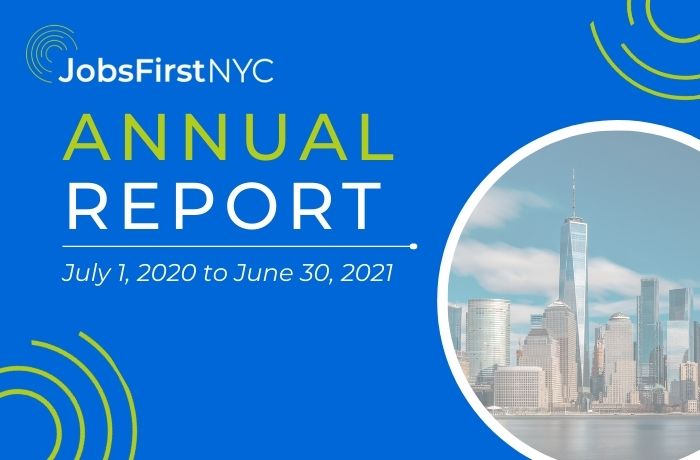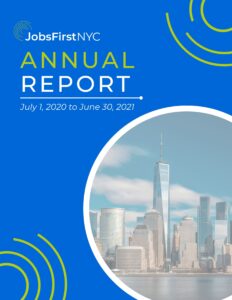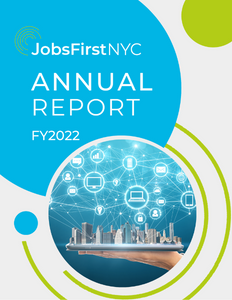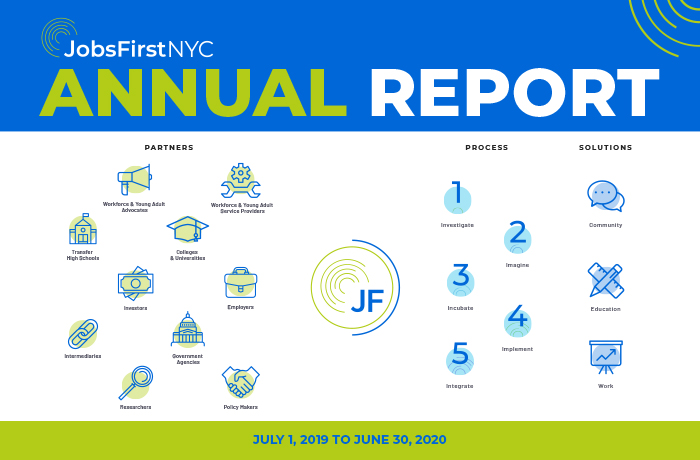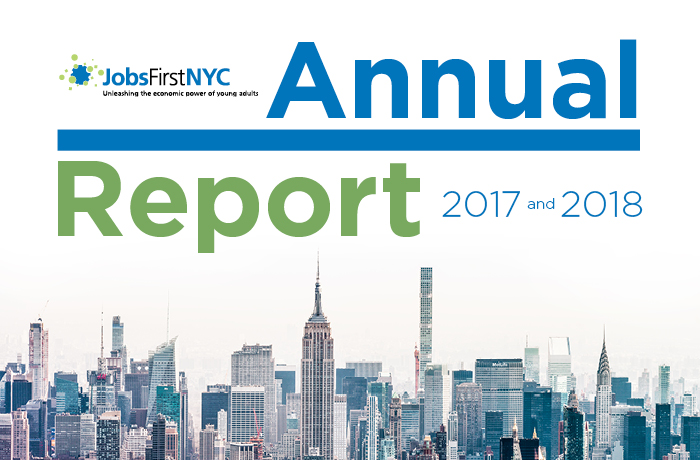Last year challenged our North Star to reduce the number of young people who are out of school and out of work and to improve economic opportunities for them and the communities in which they live. The COVID-19 pandemic continued to impact the lives of young people, hitting those in historically economically challenged communities especially hard, above all by impeding their ability to secure sustainable livelihoods. Indeed, last year, about 184,000 New Yorkers aged 18–24 (almost 27% of this age group) were out of school and out of work, representing an 80% increase from the previous year. This brought us nearly full circle to where we were in 2006, when a similar crisis facing this population provided the impetus for JobsFirstNYC’s creation.
Against this backdrop, we worked diligently with our partners to address the repercussions of COVID-19 and to ensure that young adults would not be left behind in the city’s economic recovery. We made notable headway in advancing economic opportunities and mobility for young adults and their communities. In particular, we:
- advanced community solutions to improve place-based economics by launching three place-based partnerships: the Brownsville Hub Cooperative (Brooklyn), the Jerome Avenue Revitalization Collaborative (Bronx), and YES Bed Stuy (Brooklyn). These new partnerships aim to provide resources and services to jobseekers to today’s ever-changing public health dynamics.
- improved education pathways to upward mobility by further embedding career pathways in the New York City high school system. In this regard, we partnered with the New York City Department of Education to support 500 high schools in providing staff with a postsecondary planning practitioner credential to prepare students to make informed postsecondary choices.
- advanced workforce equity by building on effective approaches to improve outcomes for workers and employers. In particular, drawing on the successes of our signature Young Adult Sectoral Employment Project, we began designing three citywide sector networks aimed at advancing high-quality skills training, strengthening collective mechanisms for workforce development organizations to negotiate with employers, and increasing employment opportunities and wages for young adults. The first network to be launched was the Green Economy Network.
- analyzed the challenges and opportunities facing young adults, their communities, and workforce development practitioners by engaging in policy advocacy, research, and learning work. Our efforts centered on elevating the voices of practitioners, defining the challenges of our constituents, and uncovering opportunities for effective solutions.
- explored ways to integrate diversity, equity, and inclusion into our workspaces. In the wake of the 2021 Insurrection, we called for Americans to stand up for a democracy that gives an equal voice to every American.
There is a pressing need to act swiftly to reduce the number of 16- to 24-year-olds who are out of school and out of work; to connect these young adults to training, education, and work; to advance them along educational and career pathways; and to provide early exposure to career development throughout the public education system.
This pandemic has created the perfect storm for leaving another generation of young adults behind. Meeting the challenges of 2022 and beyond will require all of us to lean in and find equitable solutions.
Sincerely,
Alan Momeyer, Chairman of the Board, and Marjorie D. Parker, President and CEO
